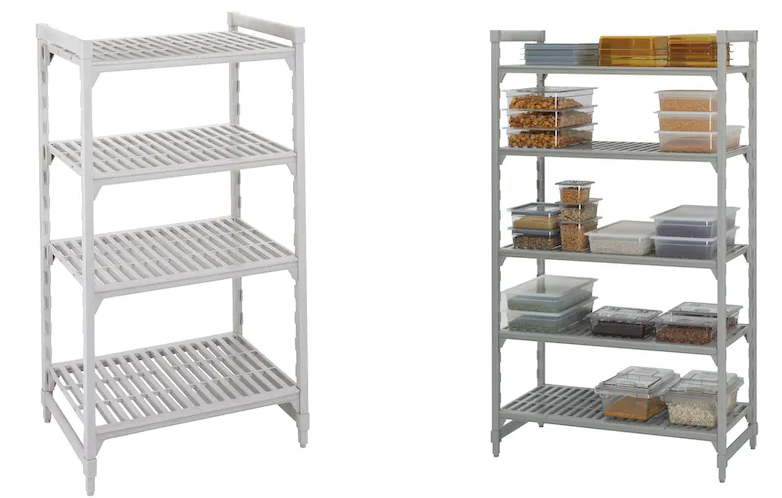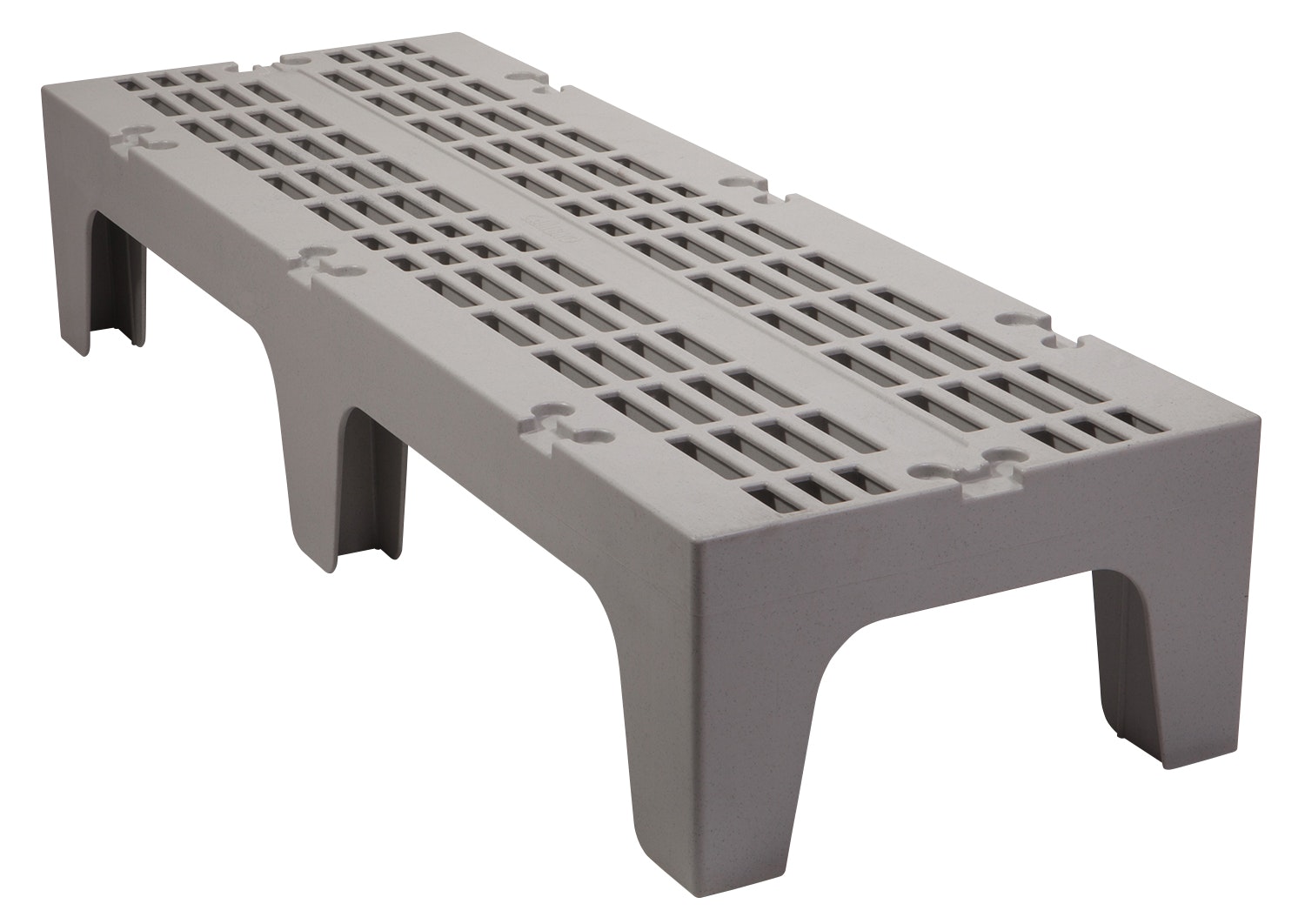Food storage can impact meal quality, your kitchen efficiency and food safety. A well-organised coolroom or storage can reduce stress in a kitchen. With ingredients easy to access, there’s also less wastage. Clearly labelled ingredients reduce the chances of cross-contamination and food poisoning.
Why is food storage so important in a commercial kitchen?
How food is stored plays a vital role in preventing food poisoning.
“Food poisoning microorganisms grow really well at temperatures between 5°C and 60°C which we call the Temperature Danger Zone,” says Agriculture and Food lecturer Senaka Ranadheera, at the University of Melbourne.
“Dry foods can be stored around 10°C to 15°C. But potentially hazardous foods such as seafood, meat and dairy need either refrigeration or frozen storage”.
How to store food safely at room temperature
Food storage areas should be kept clean and dry. But, older metal shelving can be hard to clean. As it rusts, sharp areas can trap dust and other particles. Cambro shelving is rust and corrosion-resistant. The shelves also won’t warp over time under heavy loads.
Cambro Shelving can assist with HACCAP compliance. They actually help prevent food poisoning, as they have an antimicrobial coating. The air vents allow for airflow, which also prevents microbes.
The shelves can be easily wiped clean or placed in the dishwasher. So cleaning becomes part of your routine, rather than interrupting your schedule.
Containers are obviously important, too. Their delivery boxes can contaminate your storeroom. So, store food in sealable containers. Cambro Food Storage Containers are sturdy and practical. The clear containers have gradations in litres and quarts in red or blue, moulded into the plastic. They stack together neatly, for a well-organised kitchen. Lids seal in freshness and prevent cross-contamination.
Storing food in your coolroom 
Storing food below 5°C slows bacterial growth, which can spoil food.
“Refrigerated food should not be repeatedly taken out and put back in storage unnecessarily. But, if you don’t properly plan, it’s a bit difficult to maintain in a restaurant environment,” says Ranadheera.
Cambro shelving is ideal for cool rooms and works well with dunnage racks. Cambro dunnage racks have vents and keep objects off the ground. They hold up to 680kg without warping, denting or cracking. Like the shelving, Cambro dunnage racks are rust and corrosion-resistant.
Cambro storage containers are also perfect for cool rooms. Cambro containers can be clearly labelled. So, produce can be rotated on a first-in-first-out basis. Cambro labels wash off easily in the dishwasher or under warm water, leaving no sticky residue behind.

Storing food in the freezer
Most bacteria can’t grow or multiply below -18°C. Raw meat, seafood and other perishables can be stored for longer periods of time in a well-organised freezer.
Prevent freezer burn by sealing your food in Cambro containers or space-saving vacuum packaging. Vacuum-sealed food needs to be well labelled, frozen solid and thawed in the cool room. Thawed food needs to be consumed within 24 hours.
Vacuum packaging allows chefs to buy produce in season. So, these ingredients can be used safely at any time of year. Menus can be more cost-effective and varied.
Reward Hospitality New Zealand can help you choose the right food storage for your business
Browse our catalogue where you’ll find an array of storage solutions. We have a team of equipment experts on standby to offer advice and answer your questions. Give us a call, start an online chat, or arrange for one of our equipment specialists to visit you in person. Reward Hospitality New Zealand can help you select the right equipment for your needs.
This guest resource is written by Comcater, a leading equipment supplier in Australiasia.